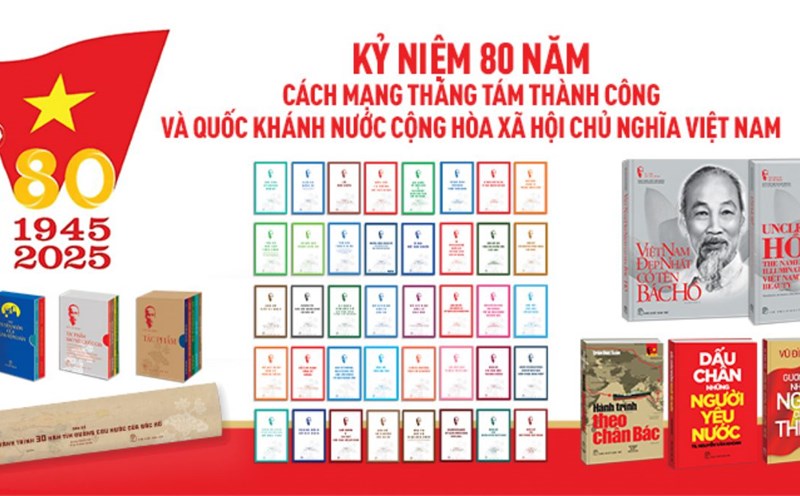Memories of the Southwestern Border Guard
Born in 1960 and who held a gun to join the Vietnamese volunteer army on the Cambodian battlefield from 1978 to 1983, author Doan Tuan carries memories of those fiery years throughout his pen-taking journey. Before "The Smoke on the Road", he published "The season of linh cam", "That season of Conquest" and many collections of short stories, reminiscations about teammates and the war. For him, writing is not only a composition, but also a way of gratitude, a duty to those who have fallen.
This book of handwritten pencils is emotional slices about the Vietnamese volunteer soldiers on the Southwestern border battlefield. Without going into the plot of the battle, the author chose a closer perspective: The life, personality, comradeship and private moments of soldiers. Thereby, the image of a soldier appears as simple, just, resilient, and courageous in the midst of bullets.
The man behind the gun
The highlight of "The Smoke by the Road" is the author's depiction of small details of soldier life: Field meals, laughter in the fireworks tunnel, mischievous jokes in the middle of the break, a moment of love that blooms early with a Khmer girl, or a normal souvenir but becomes a battlefield souvenir. Those stories show that soldiers are not only symbols of heroes but first of all human beings with bones and meat, with simple dreams of peace, love and life.
In the pages of author Doan Tuan, the fierceness of the battlefield is clearly present: lien tuc artillery warfare, dense mines, and sudden losses in just an moment. But at the same time, he always emphasizes the spiritual strength, optimism and humane affection that soldiers have for each other as well as for the Cambodian people. That is how they keep their faith and determination to overcome.
gratitude to teammates
A flow of emotions throughout the pen-and- say collection is the torment of his teammates who have returned to the border. Writer Doan Tuan wrote it as a way to light up invisible memories, preserving memories for faces in their late teens and early twenties who have not yet returned. He has returned to the cemetery many times, standing in front of the tomb of his comrades to call their names, to tell the next generation about those people. In the work, memories of them appear without tragedy but are stagnant, making readers deeply feel the silent sacrifice.
What makes the weight of the work is the authenticity. The writer experienced it, witnessed it, held a gun and saw his comrades fall right next to him. Therefore, every detail, every memory in the book is convincing, both familiar and haunting.
sign language is rich in images
Originally a film screenwriter, Doan Tuan has a special strength in visual language. With just a few damages, he evoked the atmosphere of the battlefield, sketched portraits of soldiers or recreated everyday scenes. The illustrations in those words create their own vitality, helping readers to see, hear and touch historical reality.
Each teammate mentioned in the book appears with a clear personality: hot-tempered, humorous, calm, and quiet. All of these form a colorful picture of the generation of Vietnamese youth who took up the field in the late 1970s.
From the battlefield to everyday life
Not only writing about the war, the author also devoted a page to the returning soldiers. They immerse themselves in making a living like many other people: being a driver, going to sea, doing business... But in the depths, the memories of war always remain, according to them in every dream, in the nostalgia for their comrades. Writing about them, Doan Tuan hopes that society will remember and respect those silent veterans.
The smoke on the roadside contributes a voice to the literary genre about war - peace. It not only recreates a special historical period but also shows the power of individual memory in preserving collective memory. For the author, writing is to avoid forgetting anyone; for readers, books are a reminder about the price of peace.
being honest, simple and rich in humanity, the book of handwritten works by author Doan Tuan will certainly touch the hearts of readers, especially the young generation today - those born and raised in peace but need to clearly understand the past to appreciate the present.
Writer Doan Tuan was born in 1960 in Hanoi, was a student of the Faculty of Literature - Hanoi University of General Education, graduated from the Soviet University of Cinema (VGIK) in 1991. He fought in the Cambodian battlefield from 1978 to 2008. He currently works at the World Cinema Magazine. His film scripts have been made into films: "O alloway of women" (Love story in a narrow alley - Vietnam Feature Film Studio, 1992, "The Golden Key" - Liberation Film Studio, 1995, "Duong Tu" - Vietnam Feature Film Studio, 2000... His printed literary books include: "Bua Yeu" (nope) - Women's Publishing House, 1993, "Khuc Dao Dau Xuan" (short story) - Women's Publishing House, 1995, "Dat Phuong Ben Trai" (poet, printed with Le Minh Quoc) - Literature Publishing House, 1995, Re-ed by Tre Publishing House, 2005.










